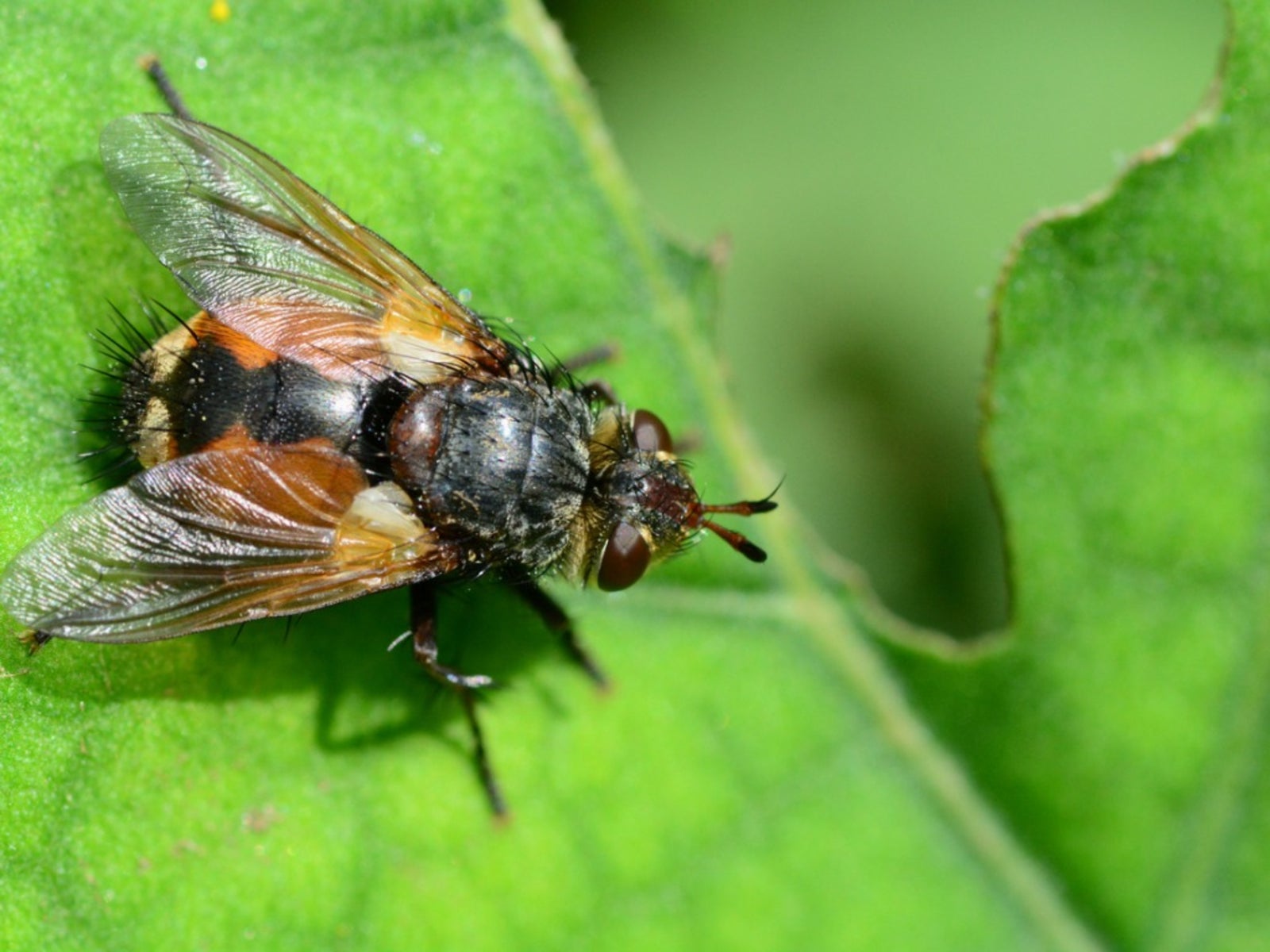Tachinid Fly Information: What Are Tachinid Flies

You've likely seen a tachinid fly or two buzzing around the garden, unaware of its importance. So what are tachinid flies and how are they important? Keep reading for more tachinid fly information.
What are Tachinid Flies?
A tachinid fly is a small flying insect that resembles a house fly. Most kinds are less than ½ inch (1 cm.) in length. They usually have a few hairs sticking up and pointing backward and are gray or black in color.
Are Tachinid Flies Beneficial?
Tachinid flies in gardens are very beneficial because they kill pests. In large part to their size, they don't bother humans, but make things difficult for garden pests. Tachinidae can either lay eggs that a host will consume and later die, or adult flies will insert eggs directly into the host bodies. As the larva develops inside the host, it eventually kills the insect it is living inside. Each species has their own preferred method, but most choose caterpillars or beetles as hosts. In addition to killing unwelcome garden pests, tachinid flies also help pollinate gardens. They can survive at higher elevations where bees cannot. Areas without bees can benefit greatly from this fly's pollinating skills.
Types of Tachinid Flies in Gardens
There are a number of tachinid fly species, which means it's inevitable that at some point you will come across one in the garden. Here are a few:
- Voria ruralis- This fly attacks cabbage looper caterpillars. A female tachinid will lay eggs on a caterpillar and then larvae will develop inside the insect. Eventually, the caterpillar dies.
- Lydella thompsoni- This fly targets the European corn borer and makes it much easier to grow corn. It is because of this, the species has been introduced to different parts of the U.S. several times.
- Myiopharus doryphorae- This tachinid preys on the Colorado potato beetle. The eggs are laid in the beetle's larvae and develop inside the insect as it grows. Soon the beetle is killed and the tachinids live on to lay more eggs.
- Myiopharus doryphorae- This fly is a parasite of squash bugs. The fly larvae burrow into the host's body. Soon the maggot emerges from the body and the host dies soon after.
Gardening tips, videos, info and more delivered right to your inbox!
Sign up for the Gardening Know How newsletter today and receive a free copy of our e-book "How to Grow Delicious Tomatoes".